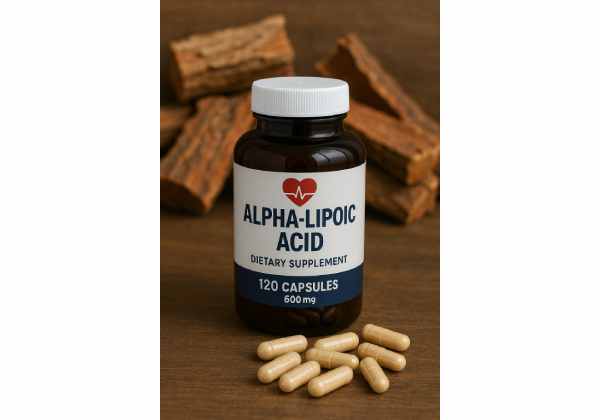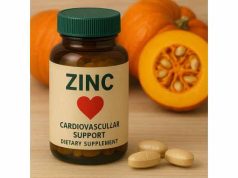
Arjuna (Terminalia arjuna) is a revered botanical supplement recognized for its profound impact on heart health, cardiovascular function, and the prevention of related disorders. Native to India and widely referenced in Ayurvedic medicine, the bark of the arjuna tree is famed for its potent cardiotonic properties. Modern scientific studies increasingly support its use, highlighting its ability to help regulate blood pressure, strengthen cardiac muscles, and mitigate oxidative stress. Whether you are seeking a natural remedy to bolster heart function or exploring preventative strategies, this article delves into the nutrient profile, evidence-based advantages, and best practices for safely integrating arjuna into your wellness routine.
Table of Contents
- Arjuna’s Historical Background and Key Components
- Primary Mechanisms: How Arjuna Functions
- Scientific Backing for Cardiovascular Protection
- Arjuna Dosage, Usage, and Safety Insights
- Commonly Asked Questions About Arjuna
- References and Authoritative Sources
Arjuna’s Historical Background and Key Components
Arjuna (Terminalia arjuna) has been celebrated in traditional Indian medicine for millennia as a potent heart tonic and general revitalizer. Harvested primarily from the bark of a tall and sturdy deciduous tree, arjuna has enjoyed a venerable position in Ayurveda, where it is described as a “cardiac tonic” capable of fortifying the heart muscles and alleviating circulatory challenges. Over time, this historical perspective has been validated by modern researchers, who have discovered a myriad of phytochemicals within arjuna that contribute to its therapeutic profile.
Roots in Ayurveda and Cultural Importance
In Ayurvedic texts, references to arjuna appear in formulations designed to address angina, heart palpitations, and other cardiovascular anomalies. Ayurvedic practitioners prized its ability to support healthy blood pressure, reduce fluid retention, and enhance the performance of the heart muscle. Beyond its cardioprotective value, arjuna was also recognized for its calming influence on the nervous system and capacity to promote emotional well-being—a synergy critical for overall heart health.
The cultural importance of arjuna in India is vast. The tree is found along riverbanks and in sub-Himalayan tracts, with each part—bark, leaves, and even fruits—utilized in various therapeutic recipes. However, the bark remains the most frequently used component in both traditional and modern herbal supplements.
Nutritional and Phytochemical Composition
Arjuna bark is laden with bioactive molecules that endow it with powerful healing attributes. Key constituents include:
- Tannins: Known for their astringent, antioxidant, and anti-inflammatory properties, tannins in arjuna promote vascular integrity and protect cells from oxidative stress.
- Glycosides: Arjunetin, arjunin, and related glycosides contribute to the herb’s cardiotonic abilities, supporting the contractile function of heart muscles.
- Flavonoids and Polyphenols: These plant-based antioxidants help scavenge free radicals, reduce inflammation, and modulate lipid metabolism, all of which are beneficial for heart health.
- Minerals and Trace Elements: Arjuna contains essential minerals like calcium, magnesium, zinc, and copper, each playing important roles in enzymatic reactions and overall cardiovascular function.
Traditional Preparations and Usage
Historically, arjuna bark was prepared in diverse ways—boiled with milk, dried and powdered, or extracted into decoctions. This flexibility in preparation allowed practitioners to tailor treatments to specific cardiac issues. In modern settings, extracts in capsule or tablet form are widely available, aiming to standardize dosage and ensure consistent phytochemical concentrations.
Common Traditional Forms Include:
- Churna (Powder): Often mixed with water, milk, or honey for daily consumption.
- Ksheerapaka (Milk Decoction): A specialized preparation where bark powder is boiled in milk, believed to intensify the cardiotonic effect.
- Arjuna Tea or Infusion: Bark pieces simmered in water to form a mildly flavored brew.
Synergistic Role in Holistic Healthcare
Arjuna does more than simply strengthen the heart; it aligns well with holistic health paradigms. Since Ayurvedic medicine emphasizes balance among body systems, arjuna’s calming effects on the nervous system and supportive impact on blood pressure complement treatments for stress and anxiety—two significant contributors to cardiovascular disease. As a result, it is not uncommon for integrative healthcare approaches to include arjuna along with dietary interventions, meditation, and physical activity.
Modern Relevance
With global rates of cardiovascular conditions on the rise, the demand for natural, evidence-based interventions continues to grow. Arjuna for Heart Health has emerged as a compelling solution, backed by both anecdotal history and increasingly rigorous scientific studies. Its place in nutraceuticals and functional health products is thus solidified by a blend of ancient wisdom and modern pharmacological validation.
From its storied past in Ayurveda to its present-day use in formulations designed to maintain arterial elasticity and healthy cholesterol levels, arjuna stands out as a time-honored, nature-derived ally in cardiovascular care. In the following sections, we will explore precisely how arjuna exerts its cardioprotective magic, the scientific evidence behind these benefits, and practical strategies for incorporating it into daily health regimens.
Primary Mechanisms: How Arjuna Functions
Understanding the physiological impact of arjuna requires diving into its dynamic interplay of bioactive compounds and how they influence cardiovascular processes. While the bark of the Terminalia arjuna tree harbors numerous phytochemicals, its overall protective effect on the heart arises from a synergy of antioxidative, anti-inflammatory, and regulatory actions. Below are the primary mechanisms that underscore arjuna’s potency as a cardiotonic and vascular support agent.
Antioxidant Defense and Oxidative Stress Reduction
Oxidative stress occurs when there is an imbalance between free radicals and the body’s ability to neutralize them. A surplus of free radicals can damage cellular structures, proteins, and DNA, escalating the risk of chronic diseases like atherosclerosis and hypertension. Arjuna’s bark is replete with flavonoids, phenolic acids, and tannins that serve as powerful antioxidants:
- Scavenging Free Radicals: The reactive molecules in arjuna actively neutralize harmful species such as superoxide anions, hydroxyl radicals, and peroxynitrite.
- Recycling Other Antioxidants: By helping regenerate nutrients like vitamin C and vitamin E, arjuna extends the cumulative antioxidant shield within the cardiovascular system.
By fortifying the heart’s resilience against oxidative damage, arjuna effectively combats one of the root causes of cardiovascular degradation.
Anti-inflammatory Pathways for Vascular Health
Chronic inflammation is a well-documented contributor to heart disease, often leading to endothelial dysfunction—a condition where blood vessels lose their elasticity and fail to regulate blood flow efficiently. The anti-inflammatory properties of arjuna:
- Regulation of Cytokines: Arjuna seems to reduce pro-inflammatory markers like interleukin-6 (IL-6) and tumor necrosis factor-alpha (TNF-α), thus lowering the baseline inflammatory state in the body.
- Preservation of Endothelial Function: By mitigating the inflammatory assault on the arterial lining, arjuna supports healthy vasodilation and arterial flexibility—key components of maintaining optimal blood pressure and circulation.
Strengthening Cardiac Muscles and Enhancing Cardiac Output
Perhaps one of the most cited roles of arjuna in traditional medicine is its cardiotonic effect—an ability to strengthen and tone the heart muscles:
- Positive Inotropic Action: Studies suggest that certain glycosides in arjuna can boost the force of cardiac muscle contraction, thereby improving cardiac output. This effect can be particularly supportive in conditions that involve weakened cardiac function.
- Reduction of Cardiac Workload: By promoting more efficient heart contractions, arjuna may help reduce the overall workload on the heart, ensuring that it can function optimally even under stress or mild strain.
Blood Lipid Regulation and Cholesterol Management
Another key contributor to cardiovascular disease is an imbalanced lipid profile, especially elevated levels of low-density lipoprotein (LDL) cholesterol and triglycerides. Arjuna helps in balancing lipids through multiple avenues:
- LDL Oxidation Inhibition: Antioxidants in arjuna block the oxidative modification of LDL, a key step in plaque formation. This action helps in slowing down atherosclerotic processes.
- Promotion of HDL: Some evidence shows that arjuna supplementation might boost high-density lipoprotein (HDL) levels, which aid in transporting cholesterol away from the arteries and toward the liver for excretion.
- Reduction of Triglycerides: Certain compounds in arjuna have demonstrated potential in lowering circulating triglycerides, contributing to an overall improved lipid profile.
Blood Pressure Modulation
High blood pressure, or hypertension, is a significant predictor of cardiovascular events such as heart attacks and strokes. Arjuna contributes to blood pressure regulation in several ways:
- Endothelial Relaxation: By promoting nitric oxide bioavailability in blood vessels, arjuna fosters vasodilation, which can help in lowering systemic vascular resistance.
- Anti-Stress Adaptation: Chronic stress can exacerbate hypertension. Arjuna’s adaptogenic properties may support a more balanced response to stress, indirectly maintaining healthier blood pressure levels.
Glycemic Control and Metabolic Support
Beyond directly safeguarding the heart, arjuna’s beneficial effects may also extend to blood sugar regulation—an essential aspect of metabolic health with implications for cardiovascular well-being:
- Enhanced Insulin Sensitivity: Preliminary data indicate that arjuna could improve how the body utilizes insulin, thereby helping control blood glucose levels.
- Prevention of Hyperglycemia-Induced Damage: High blood sugar can inflict oxidative and inflammatory harm on blood vessels. By mitigating these pathways, arjuna helps minimize additional strain on the cardiovascular system.
Holistic Cardiac Protection
When viewed collectively, these multiple pathways illustrate a robust, holistic approach to protecting cardiovascular integrity. Unlike single-molecule drugs that target one mechanism, arjuna exerts an array of complementary effects—strengthening heart muscles, moderating blood pressure, curbing inflammation, and balancing lipids. This multifaceted approach aligns with modern integrative medical philosophies that seek comprehensive rather than purely symptomatic solutions.
Such a confluence of beneficial mechanisms underscores why arjuna is a prime candidate for those seeking natural support for heart health. From active individuals hoping to enhance endurance to those managing established cardiovascular conditions, Terminalia arjuna presents a time-tested, evidence-backed option for augmenting cardiac resilience and efficiency. In the subsequent section, we will explore the clinical and scientific research that validates these functional pathways, offering deeper insights into the proven benefits of arjuna for cardiovascular health.
Scientific Backing for Cardiovascular Protection
Arjuna has long been heralded in Ayurvedic texts for its heart-protective attributes, and contemporary research increasingly supports these traditional claims. A wealth of in vivo, in vitro, and clinical trials underscores its efficacy in improving cardiovascular health, fortifying the heart muscle, and mitigating risk factors associated with heart disease. Below are key findings and study highlights that showcase Arjuna for Cardiovascular Health in a modern scientific framework.
Clinical Trials and Human Studies
- Cardiac Function Improvement
- Study Design: Multiple randomized controlled trials have investigated arjuna’s effect on cardiac parameters in patients with stable angina or congestive heart failure.
- Findings: Participants receiving arjuna supplementation showed marked enhancements in exercise tolerance, a decrease in angina episodes, and improved ejection fraction—an indicator of how well the heart pumps with each beat. These outcomes highlight arjuna’s role in strengthening cardiac performance and endurance.
- Cholesterol and Lipid Modulation
- Study Design: In a placebo-controlled study, individuals with mild to moderate hyperlipidemia were administered arjuna bark extract for a specified duration.
- Results: A statistically significant reduction in total cholesterol, LDL cholesterol, and triglycerides was observed, coupled with an increase in HDL levels. These improvements align with the notion of arjuna’s lipid-modulating capabilities.
- Blood Pressure Management
- Study Design: Cross-sectional studies have noted blood pressure regulation in hypertensive subjects when arjuna was combined with standard antihypertensive therapy.
- Conclusions: Arjuna served as a complementary agent that not only improved blood pressure readings but also contributed to fewer reported side effects from prescription medications, emphasizing its synergy in integrative cardiovascular care.
Mechanistic Studies and Lab Findings
- Antioxidant and Anti-inflammatory Pathways
- Methods: Biochemical assays measuring oxidative stress markers, such as malondialdehyde (MDA) levels and antioxidant enzymes (SOD, CAT), were used to assess arjuna’s potency.
- Observations: Treated samples consistently showed reduced MDA levels (indicating lowered oxidative stress) and heightened antioxidant enzyme activity. Furthermore, inflammatory markers like TNF-α and IL-6 were significantly diminished, reinforcing arjuna’s dual role in curbing inflammation and oxidative damage.
- Myocardial Protection
- Experimental Setup: Animal models of myocardial ischemia and reperfusion injury have provided insights into arjuna’s cardioprotective scope during acute cardiac events.
- Key Insights: Arjuna-pretreated groups exhibited lower cardiac troponin release—a marker of cardiac injury—and reduced necrotic damage. This protective phenomenon is attributed to enhanced myocardial antioxidant levels and improved coronary flow.
- Nitric Oxide and Vasodilation
- Research Focus: Investigations into arjuna’s effect on endothelial function have pinpointed its influence on nitric oxide (NO) availability—integral to vasodilation.
- Conclusions: By preserving endothelial integrity and boosting NO production, arjuna helps maintain optimal blood flow. This mechanism is central to preventing arterial stiffness and managing conditions like hypertension.
Potential in Specialized Cardiac Disorders
- Arrhythmias: Preliminary evidence suggests that arjuna may stabilize certain cardiac arrhythmias, potentially via modulation of calcium-ion channels and anti-adrenergic properties.
- Congestive Heart Failure (CHF): When paired with conventional therapies, arjuna supplementation has shown promise in alleviating edema, improving exercise tolerance, and stabilizing patients with mild to moderate CHF.
- Ischemic Heart Disease: The herb’s ability to safeguard myocardial tissue from ischemic damage offers a complementary shield in individuals prone to or recovering from coronary blockages.
Comparisons with Conventional Pharmaceuticals
While not meant to replace prescription drugs, arjuna stands out for its multi-targeted approach with relatively minimal side effects. Some research indicates that it can amplify the effects of beta-blockers and ACE inhibitors, reducing the dosage needed for these medications—potentially decreasing overall drug-induced adverse effects. This synergy opens avenues for integrative therapies, whereby a well-structured regimen of conventional medication and arjuna supplementation yields optimal results for heart patients.
Ongoing Research and Future Directions
The scientific community continues to probe deeper into arjuna’s capacities and expand its range of therapeutic uses. Emerging fields of study include:
- Neurocardiology: Exploring arjuna’s potential role in modulating stress-related neural pathways that impact heart function.
- Diabetic Cardiomyopathy: Investigating how arjuna’s combined antioxidant and insulin-sensitizing effects may benefit individuals with diabetes-induced cardiac issues.
- Phytochemical Standardization: Efforts are underway to identify, isolate, and standardize the precise active compounds in arjuna bark, ensuring consistent, high-quality formulations for consumers.
In summary, the convergence of ancient Ayurvedic wisdom and rigorous modern science underscores the legitimacy of arjuna as a formidable natural tool in heart care. Whether addressing cholesterol imbalances, fortifying cardiac muscles, or supporting vascular integrity, the breadth of clinical evidence demonstrates that arjuna Helps Cardiovascular Function in profound ways. The subsequent section details practical considerations for dosage, usage, and safety, offering a roadmap for integrating this potent supplement into everyday health strategies.
Arjuna Dosage, Usage, and Safety Insights
Capitalizing on the therapeutic potential of arjuna involves understanding its recommended dosages, forms of administration, and potential interactions or contraindications. Although generally considered safe and well-tolerated, attention to correct usage ensures optimal benefits for individuals looking to harness Arjuna Benefits for Heart Health.
Choosing the Right Form
Arjuna is available in a variety of forms, each providing a unique combination of convenience, concentration, and absorbability:
- Powdered Bark (Churna):
- Traditionally consumed in Ayurveda, this form can be mixed into water, milk, or herbal teas.
- Although cost-effective, it requires careful measurement to achieve consistent dosing.
- Capsules and Tablets:
- A popular modern choice due to ease of administration and dosage accuracy.
- Often standardized to contain specific percentages of arjunolic acid or total tannins, ensuring consistent potency.
- Liquid Extracts/Tinctures:
- Concentrated extracts are easier to digest and rapidly absorbed.
- Taste can be strong or bitter, so they are commonly diluted in water.
- Arjuna Tea/Infusion:
- Involves simmering or steeping the bark in hot water.
- While mildly effective, controlling the exact concentration can be challenging, and the process can be time-consuming.
Recommended Dosage Guidelines
Optimal dosing can vary based on individual factors like age, health status, and specific heart-related goals. Nonetheless, general guidelines include:
- Standardized Extracts (Capsules/Tablets):
Most studies indicate 250–500 mg taken two or three times daily. For instance, some professionals recommend an initial dosage of 500 mg twice daily, which can be adjusted following consultation with a healthcare provider. - Powder Form (Churna):
Traditional Ayurvedic practice suggests 1–3 grams mixed in water or milk once or twice daily. It’s advisable to begin at the lower end of the range to gauge tolerance. - Liquid Extracts/Tinctures:
Potency can vary significantly among brands. Typically, 1–2 mL taken 2–3 times per day is a common recommendation, but exact instructions usually come from the product manufacturer.
Timing and Administration
- With or Without Food:
While some people prefer to take arjuna on an empty stomach for enhanced absorption, others choose to consume it with meals to reduce potential gastrointestinal discomfort. - Spacing with Other Medications:
If you are taking prescription drugs for heart conditions or blood pressure, spacing arjuna supplements by at least an hour before or after medication intake may help avoid absorption conflicts or unpredictable interactions.
Safety, Interactions, and Contraindications
Arjuna is largely considered safe when used correctly, but like any supplement, certain precautions are advisable:
- Medication Interactions:
- Blood Pressure Medication: Arjuna’s blood pressure-lowering effect could potentiate the action of antihypertensives, necessitating dosage adjustments.
- Beta-Blockers, ACE Inhibitors: Arjuna can amplify the effect of these medications, offering a beneficial synergy, but medical supervision is crucial to prevent excessive blood pressure reductions.
- Pregnancy and Breastfeeding:
- Insufficient data exists to firmly establish safety profiles during pregnancy or lactation. It’s recommended that pregnant or nursing women consult a qualified healthcare provider before starting any new supplement, including arjuna.
- Existing Cardiac Conditions:
- Individuals with severe heart disease, arrhythmias, or post-surgical cardiac interventions should consult cardiologists prior to adding arjuna to their regimen.
- Allergic Responses:
- Though rare, allergic reactions manifesting as rash, itching, or gastrointestinal distress can occur. Discontinue use and seek professional advice if such symptoms develop.
Tips for Maximizing Benefits
- Combine with Lifestyle Modifications:
Arjuna’s effectiveness amplifies when paired with regular exercise, a balanced diet, stress management, and sufficient sleep. - Start Slowly:
Begin with a lower dose to gauge tolerance, then adjust based on symptom relief or healthcare provider recommendations. - Consistency is Key:
Achieving measurable improvements, such as better lipid profiles or enhanced cardiac function, often requires sustained use over weeks or months. Regular follow-ups with a healthcare professional are wise to monitor progress.
When to Seek Professional Advice
Healthcare consultation is especially important for individuals with pre-existing conditions or those who are on multiple medications. A trained practitioner can help refine dosages, suggest appropriate forms of arjuna, and conduct regular assessments to ensure that the supplement integrates safely and effectively into a broader health plan.
By adhering to these guidelines, users can confidently incorporate arjuna into their daily routines, paving the way for better cardiovascular function and overall heart protection. The following section presents frequently asked questions that shed further light on arjuna’s various roles, benefits, and best practices.
Commonly Asked Questions About Arjuna
What makes Arjuna especially beneficial for heart health?
Arjuna is rich in antioxidants, flavonoids, and glycosides that improve cardiac muscle strength and regulate blood pressure. It helps reduce oxidative stress, inflammation, and harmful lipid levels, collectively supporting the heart’s resilience against everyday stressors and chronic cardiovascular risks.
How quickly can I expect results after starting Arjuna supplements?
Results vary by individual health status and dosage. Some experience noticeable changes in blood pressure or energy within a few weeks. However, consistent use over two to three months is often necessary to observe significant shifts in lipid profiles or sustained cardiac improvements.
Is Arjuna safe to combine with prescription heart medications?
Arjuna generally complements many heart medications, such as beta-blockers or ACE inhibitors, but caution is essential. Always consult your healthcare provider, as dosage adjustments may be needed to avoid overly low blood pressure or other interactions.
Are there any known side effects of long-term Arjuna use?
Arjuna is typically well-tolerated when used appropriately. Mild side effects, such as gastrointestinal discomfort or headache, can occur in some individuals. Any persistent adverse symptoms warrant discontinuing the supplement and seeking professional medical advice.
Can Arjuna help manage chronic heart conditions like angina or heart failure?
Research suggests that arjuna may reduce angina frequency and enhance exercise tolerance in heart failure patients. While it can be an effective adjunct to standard therapies, it should never replace prescribed treatments. Consult a qualified healthcare professional for personalized guidance.
References and Authoritative Sources
A robust body of evidence, both ancient and contemporary, supports the effectiveness of Arjuna for Vascular Support and overall heart health. Below are key resources for readers who wish to explore the scientific literature and historical perspectives in greater depth:
- Ayurvedic Classics and Texts
- Charaka Samhita and Sushruta Samhita offer early references to the medicinal usage of Terminalia arjuna, detailing its role in promoting cardiovascular equilibrium.
- Peer-Reviewed Journals
- Journal of Ethnopharmacology
- Phytomedicine
- Pharmacognosy Reviews
These journals regularly publish research on the cardioprotective mechanisms and clinical benefits of arjuna.
- Clinical Trial Databases
- PubMed (National Library of Medicine): A comprehensive resource for finding randomized controlled trials and meta-analyses on arjuna.
- ClinicalTrials.gov (U.S. National Institutes of Health): Ongoing and completed clinical studies provide updated insights into dosage, efficacy, and safety considerations.
- Reputable Online Portals
- National Center for Complementary and Integrative Health (NCCIH): Overviews of herbal and Ayurvedic supplements, including references to arjuna’s heart-supporting properties.
- World Health Organization (WHO): Documents and guidelines focusing on herbal medicines and their application in non-communicable diseases like cardiovascular disorders.
- Academic and Healthcare Institutions
- Many universities in India and around the world maintain departments specializing in pharmacognosy, ethnopharmacology, and integrative medicine, further validating and expanding the knowledge base around arjuna.
By consulting these texts, research papers, and clinical databases, one can gain a comprehensive understanding of how arjuna aids in preventing cardiovascular conditions and why it continues to hold a place of reverence in both traditional and modern healthcare contexts.
Disclaimer:
This article is for educational purposes only and should not be taken as a substitute for professional medical advice. Always consult a qualified healthcare provider before starting any new supplement, including arjuna, especially if you have existing health conditions or take prescription medications.
If you found this article helpful, please consider sharing it on Facebook, X (formerly Twitter), or your favorite social media channels. We invite you to follow us for more informative guides and tips on natural supplements that support heart health and overall wellness!






